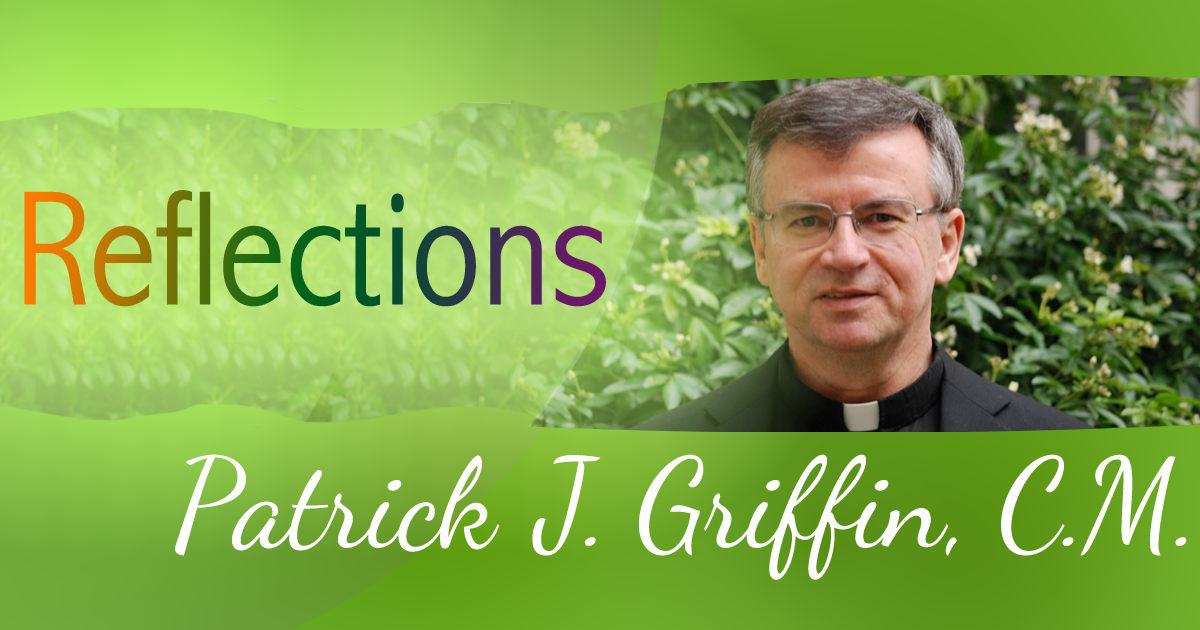
A Vincentian View: “An Examined Life”
Socrates wrote: “The unexamined life is not worth living.” The sentiment gives color and force to the desire for making a retreat, a nightly examen, a preparation for the sacrament of reconciliation, a heartfelt psalm of thanks. The summons to live deliberately insists upon the value of a human life and the preciousness of the time allotted to it.
As I think ahead to the celebration of the 400th Anniversary of the Vincentian charism on January 25, 2017, the words of the quotation continue to capture my imagination. I have asked myself: what did Vincent say on that day in 1617? I have goaded myself to attempt to write his sermon. I have wondered how much God’s Spirit worked in the minds and hearts of Vincent’s hearers as well as in his speaking—like a Pentecost event. I cannot escape my curiosity regarding the role which the celebration of the Feast of the Conversion of St. Paul held in this drama. Perhaps all of these elements (and more) give shape to the event.
But, what stands out as foremost in my mind at present is the importance of an examined life. I see it played out in several hearts.
First of all, the peasant in Gannes. The story tells us that Vincent went to the bedside of a sick man who knew that his final days approached. Any of the ways in which he had been fooling himself about the state of his soul up until this point now wore thin. He knew the depth of his own sinfulness. He could not hide from his life anymore, and so he poured out his story to his confessor. Undoubtedly Vincent aided him with a sympathetic ear and encouraging word. In the end, an examined life stood forth clearly in all its human weakness, and the penitent heard the words of God’s forgiveness and absolution. He had been saved!
His proclamation of this truth was unbounded. Madame de Gondi heard and was shaken. She had told Vincent of her unease with a confessor who did not know the words of absolution. As she began to think of her own life, but perhaps moreso the responsibility which she had towards the hundreds of men and women who were on her properties, she grew pensive. She shared in a responsibility for these people. Their spiritual as well as physical well-being fell upon her plate. How well attended were they? This examination of her own conscience opened up the need in her to be more concerned for these others. She would be answerable for them before the throne of God. What must be done? The question was directed as much at herself as at Vincent.
And Vincent must have heard the urgency in her voice. He had already ministered to the dying man and experienced the blessedness of his priestly vocation. He could not avoid wondering what calls went unanswered because of other, lesser leanings. Perhaps he became aware of his own carelessness in confessing his own sinfulness. He needed to give his life a different, deeper direction. The words of the peasant as well as those of Madame de Gondi joined with those of his own conscience and summoned an examination of life.
Thus, when Vincent mounted the pulpit in Folleville and began to speak about the need for honest self-reflection leading to general confession, the people heard him. No one doubted the depth or urgency of his message. He had been converted not by being thrown to the ground but by being caught by compassion. People believed him. They began to ask themselves what was holding themselves back from knowing this closeness to the divine in their lives. As they did so, they were ready to confess and experience healing.
On the bottom line, the experience of Folleville on January 25, 1617 invites me to think about my own life and the need to examine it more closely. At the foundation of the Vincentian charism stands that call for each of us.





Just as when a violin is perfectly tuned, the sound rings out fully resonant with the whole instrument. In just this way, I think that when our hearts are attuned to truth, or the Holy Spirit, or the love of Jesus, the truth can ring out from us. And yes, how true, the examined life, the heart that is open and listening, is the one that is open to such tuning. Opening our hearts and recognizing the presence of love, suffering, truth, and with it the simple desire to experience and be an expression what is… that is how we can become a living sign of compassion, and so both experience healing and offer hope to others.